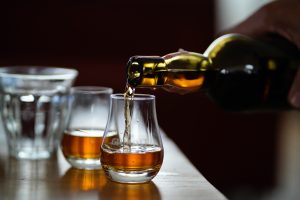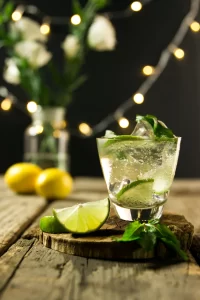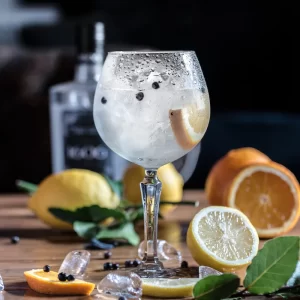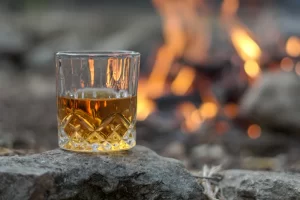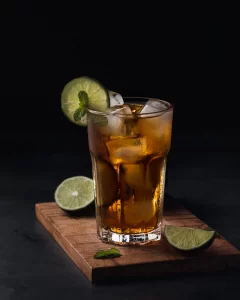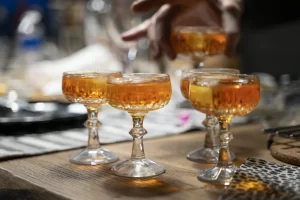Jacksonville, Florida Distilleries
Jacksonville’s distillery industry is going through a boom since Florida State changed its laws in July 2021.
We will be explaining all of the new requirements below, as well as the old rules, so no matter where you are in your distillery business, you can follow along.
Does Jacksonville Have Unique Rules?
No. Jacksonville’s laws and regulations aligned with Florida. This means that all our data will come from Florida’s paperwork and legal details. There is one exception to this rule, which we will explain later on.
Types Of Florida Alcohol Licenses
Looking at the Florida Division of Alcoholic Beverages And Tobacco licenses breakdown, you’ll see a lot of jargon and acronyms which are left unexplained.
Before we show you the charges and licensing requirements. We will first explain the jargon.
PS
PS stands for Package Sales License. These are needed by stores that plan on selling packaged alcoholic beverages.
COP
COP stands for Consumption On (or off) Premises. These licenses are needed for restaurants, bars, and pubs.
The licensing will contain either a PS or a COP, alongside a number.
1APS
1APS is the most basic option available. This license allows a store to sell beer. Beer isn’t a catch-all term here, this license does not allow you to sell wine or spirits – just beer.
This also only includes packaged beer, which means selling open glasses at a pub or club isn’t acceptable. Your customers cannot drink the beer on the premises.
2APS
If your business wants to sell wine as well as beer, you will need 2APS. It has the same restrictions as 1APS meaning you cannot sell spirits, and you cannot allow customers to drink on the premises, however, you can add wine to your shelves.
This is a great option for medium or large grocery stores.
3PS
With a 3PS license, you can sell spirits, wine, and beer. However, you still cannot allow beverage consumption on the property.
1COP
1COP allows for the sale and consumption of beer both on and off the premises. However, you cannot sell wine or spirits.
2COP
2COP allows for the sale and consumption of beer and wine both on and off the premises. However, you cannot sell spirits.
4COP
4COP allows for the sale and consumption of beer, wine, spirits, and mixed drinks. You can sell for on-premises drinking or off-premises drinking.
You will notice that there is no 3COP, but there is 5COP, 6COP, 7COP, and 8COP. 3 COP used to have a different meaning, which is no longer in use. Instead of changing 4COP to 3COP, 3COP has been removed to avoid confusion.
5COP, 6COP, 7COP, 8COP
These COP licenses follow the same beer, wine, and spirit linear restrictions, but they restrict the business to consumption on the premise only.

Fee And Taxations
The licensing period starts on the 1st of May and through the 30th of April each year.
Depending on what you sell and how you sell it, you will need to pay these licensing tax fees.
- 1APS – Beer sold at retail, but consumed off the premises – $5
- 2APS – Beer and wine sold at retail, but consumed off the premises – $15
- 1COP – Beer sold at retail, and consumed on or off the premises – $20
- 2COP – Beer and wine sold at retail, and consumed on or off the premises – $45
This is where Jacksonville has its own tax systems. Although they follow the rest of the COP and APS Florida laws, they have their own pricing system.
- Beer sold at retail, and consumed on premises – $15
- Beer and wine sold at retail, and consumed on the premises – $30
- Wine only – sold at retail and consumed off the premises – $10
- Wine only – sold at retail and consumed on the premises – $15
- Wine only – sold at retail and consumed on or off the premises – $25
- Beer old wholesale – $37.50
- Wine only wholesale – $37.50
- Beer and wine wholesale- $62.50
If you have multiple businesses or multiple premises you can apply for the same license but receive a reduced fee of $5.
A Break Down Of The Florida Statutes 2022 Bill
This law we are breaking down is called 562.27.
In the law, we see that no one can handle the tools, wort, or fermentation ingredients unless they have been authorized. This means that each company and employee must have the licenses mentioned above.
Breaking it down further, this means that those not planning to sell beer itself, but the produce to make beer must be licensed. The same goes for wine and spirits.
If found in violation of this law, the sheriff can seize all ingredients and tools which make alcoholic beverages, including sugar.
This also applies to selling alcoholic beverages without a license.
Breaking these laws is classed as a misdemeanor of the second degree. This means a fine of $500 if convicted.
Beer Is More Expensive
Although beer is seen as the cheapest option when just looking at the licensing fees, page 28 of the Licenses And Permits For Alcoholic Beverages document shows that brand registration fees cost $30 per brand.
This means that any distributor (not just the manufacturer) must pay $30 per brand of beer sold.
Wines cost $26 and liquor costs $30, but neither state that this fee is per brand for the manufacturer. This means restaurants, bars, and stores will not need to pay as much.
Final Thoughts
Read through each of the linked official Florida or Jacksonville documents for a full picture of the distillery law and licensing expectations.
Almost all forms can be applied online, however, talking to your government directly can help break down the legal jargon of your specific business.
Frequently Asked Questions
What Is The Oldest Distillery In Florida?
St. Augustine is the oldest distillery in Florida and was founded in 2013 by 20 families who wanted to create a world-class spirit.
